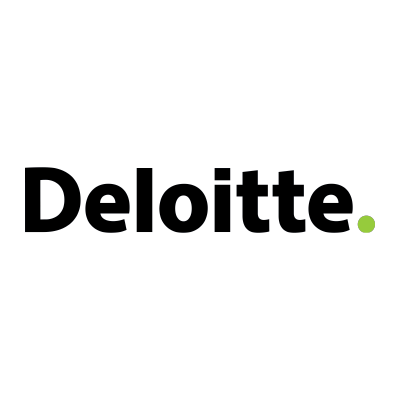STRATO Blockchain Business Network FAQ
Blockchain 101
Blockchain is a technology that allows for the creation of scarce, transferable digital assets. It is a ledger that handles the “double spend” problem of accounting/economics for digital assets. Blockchains are…
Networks
A blockchain is a network of computing machines that connect together and create a computing system that can power an array of applications.
Database / Ledgers
A blockchain is a distributed database that maintains a continuously-growing list of records called blocks.
Each block contains a timestamp and a link to a previous block. The data in a block cannot be altered retrospectively.
Decentralized
A blockchain ledger is not stored in one (central) computer or database. Each network participants maintains a copy of the latest state of the ledger.
Blockchains are often called decentralized or distributed because the records and blocks are confirmed by the multiple network participants, so all parties can agree on the shared dataset and no single party has complete authority.
Secure & Verifiable
Blockchain allows information to be updated, verified, and shared securely—not copied like traditional databases.
For example, if you were to send an email with a file attached, the recipient would not be getting the exact attachment. Instead they would be getting a copy. But how do either of you know if that data is accurate or hasn’t been changed since you have two copies? How can you be sure of its verified accuracy?
Blockchain & cryptocurrency are related through transactions, protocols, and cryptography – but NOT the same
Cryptocurrency
Digital currency that is managed through a blockchain technology
- BTC – Bitcoin
- ETH – Ether
- LTC – Litecoin
- BCH – Bitcoin Cash
- 1000’s of others
Blockchain
Database and Network Technology
- Ethereum
- BlockApps STRATO
- HyperLedger
- Fabric
- Corda

There are two general types of blockchains: Public & Enterprise
Public Blockchains



- All activity visible to the public
- Network members can self-identify, but are usually anonymous
- Network latency does not scale well
Enterprise Blockchains
AKA Private or Permissioned


- Activity visible by network members only
- Visible identity of network members
- Lower network latency
Enterprise blockchain is blockchain technology that goes the extra mile.
Ethereum blockchain technology is sometimes dubbed as Web 3.0 because it poses a revolutionary approach to networking and communications. However, the protocol and standards defined in Ethereum’s white paper and yellow paper only go so far….
Enterprise blockchain technologies like STRATO go the extra mile to provide greater security, reliability, and features that make it useable in the real world.
Why is Enterprise Blockchain Valuable?

More transparency, better compliance and new supply chain efficiencies through a shared ledger
Standard Supply Chain Management

- Difficult to verify records
- Inconsistent data formats between parties
- Mismatches between parties require manual reconciliations (delays and resources)
- Limited visibility
Solution: Blockchain Ledger

- Standardized data formats and better analytics capabilities
- Real-time information updates
- High-visibility (with data privacy options)
Challenge: Centralized Intermediaries

Solution: Blockchain Ledger

Challenge: Multiparty Reconciliation

- Need to verify data between many counterparties
- Need to maintain multiple systems
- Manual reconciliation and varying data standards
Solution: Blockchain Ledger

- Blockchain system stays in-sync as updates are validated by the network
- Reliable data standards and processes
Ethereum
STRATO is built based on the Ethereum protocol with modifications that make it enterprise-grade – mostly to help customize and manage privacy, governance and throughput.
BlockApps also chooses to build STRATO based on Etheruem specifications because:
- It’s one of the most widely-used blockchain technologies in the world with a very large developer pool that enables large scale, affordable development
- There is significant interest in Enterprise-grade ethereum due to its flexibility and extensibility via smart contracts – see the EEA for more info
No. STRATO networks are private and not linked with the public network’s nodes, transactions or cryptocurrency.
No. STRATO networks are private and not linked with the public network’s nodes, transactions or cryptocurrency.
Our work with the EEA keeps STRATO up-to-date with both new public Ethereum standards and private/enterprise standards.
While the PublicNet Ethereum protocol is not updated very often, we watch it closely and are ready to make any changes that improve the product or resolve bugs and security issues.
Nothing will happen to STRATO if the Ethereum PublicNet forks or fails.
While we like to keep up-to-date with current Ethereum standards, STRATO is focused on maintaining enterprise-grade functionality and reliability to its users. We will never require updates that put this functionality at risk.
BlockApps STRATO
In short, STRATO is a flexible blockchain solution for building and running business networks. STRATO serves as the base layer for secure business network transactions and activity, creating a highly extensible platform for business groups to use.
STRATO is used by Fortune 500 companies, industry-owned businesses, and software startups alike.
Large companies like Bayer, BHP Billiton, Ticketmaster and John Hancock use enterprise-grade STRATO to manage and enhance various processes relevant to their business.
Meanwhile, partners, developers and technology companies build solutions and applications on STRATO.
You can get STRATO in minutes through cloud marketplaces including Amazon Web Services, Google Cloud Platform, and Microsoft Azure.
Alternatively, if you want to use STRATO without the marketplace you can buy a license here and BlockApps will set up the STRATO for you.
If aren’t sure which option is best for you (or need a larger network) contact our team and we’ll be in touch!
Our developer docs have everything you need to get started and build applications using STRATO.
If you can’t find the information you’re looking for, check our forums or submit your own post.
Yes. We understand the needs of banks, medical facilities and enterprises with sensitive data. See “How can I get STRATO” for more details.
A genesis block is the first block in the blockchain.
In STRATO, a genesis block is added right after a new network is created. It sets the stage by containing all of the starting rules for the network (see Governance)
STRATO Features
So. Many. Things. Check out our features page for a full list.
In short, STRATO allows users to quickly create private blockchain networks with custom privacy and governance configurations.
STRATO is also built to be used in the real world by real people, meaning all of these features are as accessible and user-friendly as possible.
In short – yes. STRATO’s privacy and governance features allow users to create networks and infrastructures that are compliant with regulations such as HIPAA or GDPR.
Rules for data storage and transfer can be encoded into STRATO in various ways, allowing for segregation of access by region, role and/or asset lifecycle.
Like any technology, however, it is only as compliant as the processes and people that surround it!
The latency of a STRATO network is totally dependent on the configuration. Configurations with more complex governance rules and data checks will naturally be slower than others.
To date, however, we have never seen a STRATO network latency that didn’t satisfy customer needs.
What’s important about STRATO network latency is how well it scales. As a network grows, there is only a marginal impact on latency.
Yes. Very scalable.
Both data volume and the intensity of business logic can impact blockchain network performance – but STRATO is designed to limit this volume and burden through use of private chains (see Private Chains)
Tokens: Not necessarily. Many STRATO networks don’t use tokens at all. Others use them as an internal store or measure for the private network.
Gas: Yes, gas is provisioned to each account and can be used to create limits on network activity (prevent infinite loops, DDOS-style attacks), but is not necessarily rationed in private networks.
Partner Network
We’re still building this section… check our our BlockApps Partner Network hub in the meantime.
The Enterprise Ethereum Alliance (EEA) is a consortium of industry and Ethereum blockchain experts focused on developing enterprise-grade standards and technical specifications for Ethereum blockchain technology.
BlockApps is a founding member and regularly participates in the advancement of these standards and specs.
BlockApps
We’re still building this section… our company page is a good place to start. You can also find out where we’re going on our events page.
PBFT (Partial Byzantine Fault Tolerance)
In short, BFT is a concept and PBFT is a consensus algorithm.
For example, bitcoin uses the mining proof-of-work (PoW) consensus algorithm to achieve BFT (Byzantine Fault Tolerance)
Compared to PoW, PBFT is a more efficient and enterprise-friendly algorithm with higher throughput, lower latency and faster transactions – all with the same level of security and finality of your transactions – meaning they cannot be reversed.
PBFT is a consensus mechanism similar to voting. It is the most mature and enterprise friendly of all algorithms. With PBFT, each member of a blockchain network has voting rights that are defined and agreed-to by the whole network in advance (see Governance).
Proof of Stake (PoS) is a weighted voting mechanism, where your voting rights are based on how much you have invested in the network.
PoS is much more rigid and less mature that PBFT.
Proof of Authority (PoA) is a less mature and less robust consensus mechanism than others.
PoA comes in many flavors, and many of them lack finality – a key benefit for enterprise blockchain that ensures transactions won’t be reversed sometime in the future.
Data Storage
We are still writing this section. Please check back later.
We are still writing this section. Please check back later.
More FAQ & troubleshooting information is available in our developer documentation.
TraceHarvest
FAQs about the TraceHarvest network and community can be found here.
About BlockApps:
More Recent Posts:
BlockApps and Genesis – Blockchain for Beef Bring Transparency to Meat Supply Chain
August 13, 2021Genesis – Blockchain for Beef leverages BlockApps' TraceHarvest Network blockchain...
Read MoreEarthidPowered by – MyEarth.Id
August 13, 2021MyEarth.Id team is working towards simplifying the process of identity...
Read More4USPowered by
August 13, 20214US is a non-partisan, real-time campaign finance compliance automation utility...
Read MoreDhananjay Goswami, Specialist Leader, Blockchain
August 7, 2021"[Deloitte received] excellent support from BlockApps. During interaction with [the]...
Read MoreMarley Gray, Blockchain Principal Architect
August 7, 2021"BlockApps was among the first to get blockchain for enterprise...
Read MoreLeonard Law, Head of GCP Financial Services Blockchain
August 7, 2021"Google Cloud is excited to partner with BlockApps to help...
Read More





